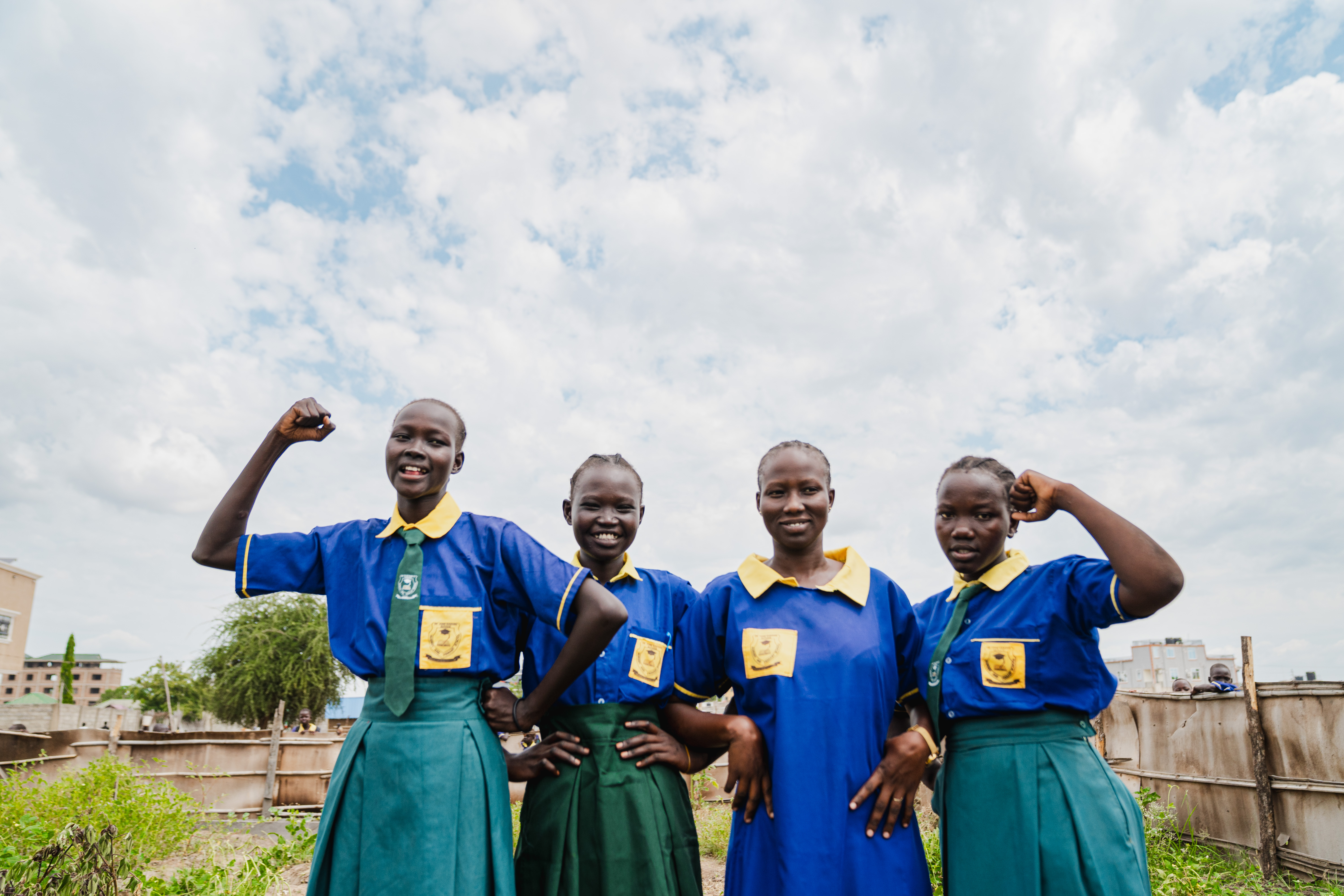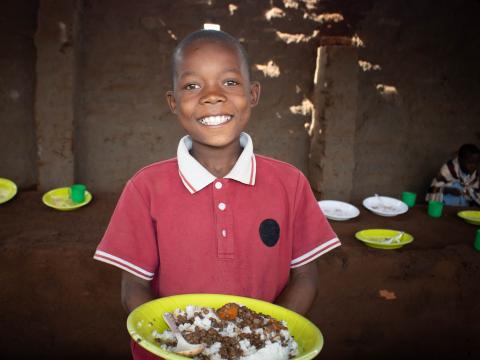From Hunger to Hope: How Children Voices Are Transforming School Meal Programs
Martha Badene and Edith Nyabicha provide a perspective on why ignoring children’s input keeps school meal programmes from reaching their full potential.
8 September 2025.
For millions of children, a school meal isn’t just lunch, it is a lifeline. Yet too often, programmes designed to nourish them are created without asking the ones who matter most: the children themselves. Across Malawi, Tanzania, the Central African Republic (CAR), and Sri Lanka, a groundbreaking initiative is proving that listening to children transforms school feeding programs dramatically. These countries are ‘Deep Dive Countries’ for the global campaign ENOUGH that aims to end child hunger and malnutrition through both advocacy and programming. School Meal is one of the key priority areas for the campaign.
The “Amplifying Children's Voices Through Social Accountability” initiative empowers children to assess their own meals. Using participatory scorecards, students evaluated food availability, menu diversity, quality, frequency, and overall satisfaction. Facilitated group discussions captured stories, concerns, and practical recommendations, creating a vivid picture of what works and what fails.
Children Driving Change
In CAR, feedback from children led to tangible improvements: two daily meals, diverse menus including vegetables and fish, and enhanced community oversight. Attendance rose 15%, and student satisfaction jumped from 60% to 85%. In Malawi, Early Childhood Development centres like PRAISE CBCC saw enrolment increase from 79 to 109 after meal programmes were introduced. Health assessments reported zero cases of malnutrition, while mothers gained crucial time for income-generating activities.
Even where programmes are limited, as in Sri Lanka and Tanzania, children’s input highlighted urgent needs: better hygiene, culturally relevant ingredients, additional meals, and variety to sustain energy. This isn’t just feedback it’s a blueprint for responsive, equitable, and dignified systems.
Evidence Speaks Louder Than Assumptions
The power of this model lies in measurability. By tracking five key performance indicators: food availability, menu diversity, food quality, meal frequency, and satisfaction governments and partners gain a practical framework for planning, budgeting, and monitoring. Institutionalising child-led monitoring, aligning rations with real-time attendance, sourcing locally, and investing in kitchen infrastructure aren’t mere suggestions, they are proven strategies that work.

The Global Perspective
This initiative also aligns with global policy frameworks, including the School Meals Coalition and the Global Alliance for Food Security. School meals are not a handout; they are a strategic investment in education, nutrition, and equity. Programs shaped by children’s voices are more effective, inclusive, and sustainable they do more than feed children; they build confidence, strengthen communities, and unlock potential.
Beyond the Plate
School meals are an entry point to broader development gains: improved learning outcomes, gender equality, community empowerment, and economic resilience. Yet achieving these outcomes requires a paradigm shift: programmes must be locally owned, culturally responsive, well-financed, and genuinely guided by children’s voices.
The message is clear:
when children speak and adults listen transformation follows. Ignoring them is not just a missed opportunity; it is a moral and practical failure.
Governments, development partners, and civil society must institutionalise child-led feedback, diversify menus, and invest in infrastructure. Every meal is a chance to invest in a child’s future. The question is, will we seize it or let it slip?
Martha Bedane is World Vision International’s Senior Advisor for Local to Global Advocacy and Impact. With over 15 years of experience, she has led efforts to advance child rights and wellbeing through advocacy, policy reform, and systems change across Africa. Her career began in law and human rights, and she has since held senior roles at World Vision International and other global organisations.
